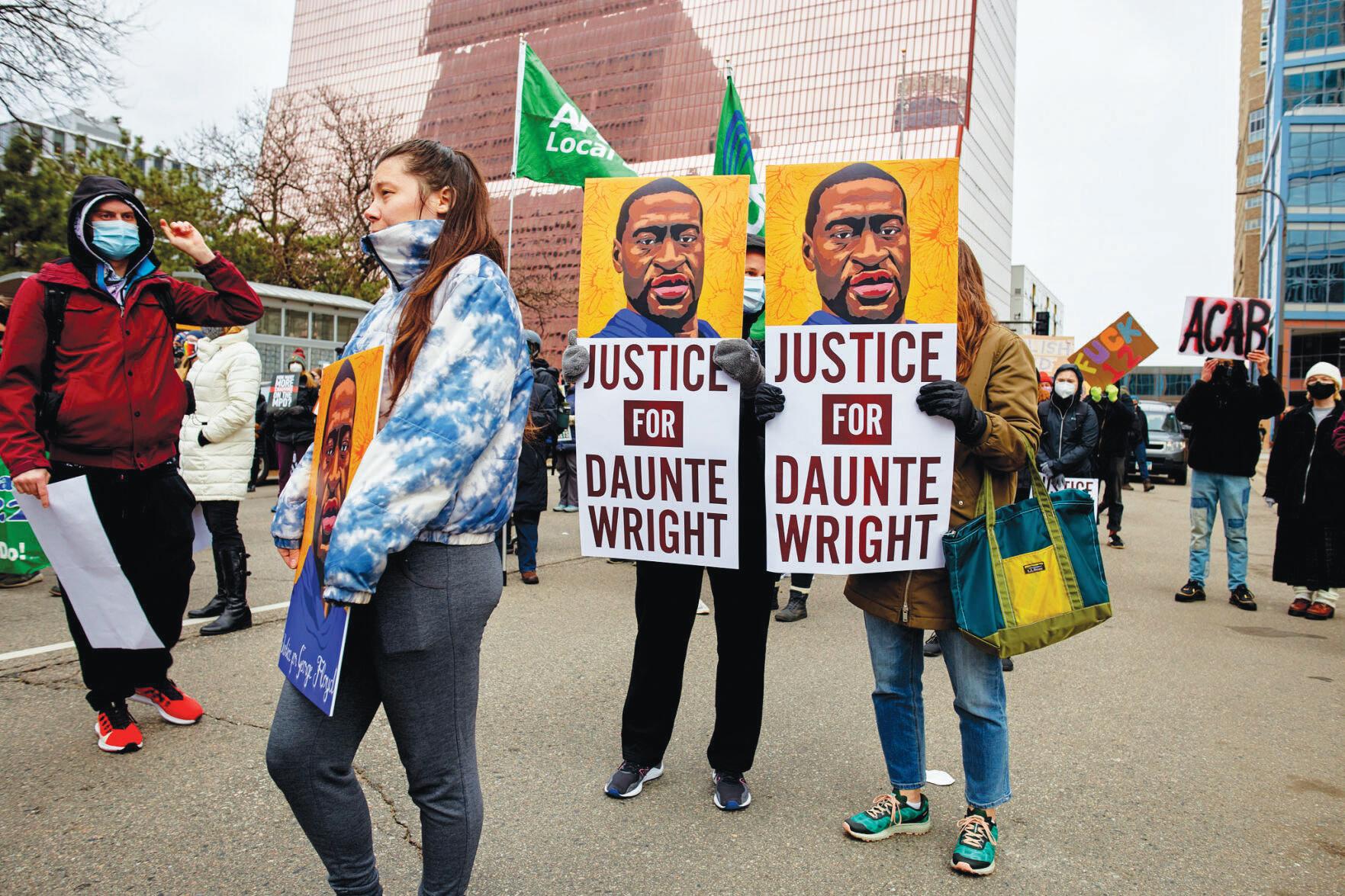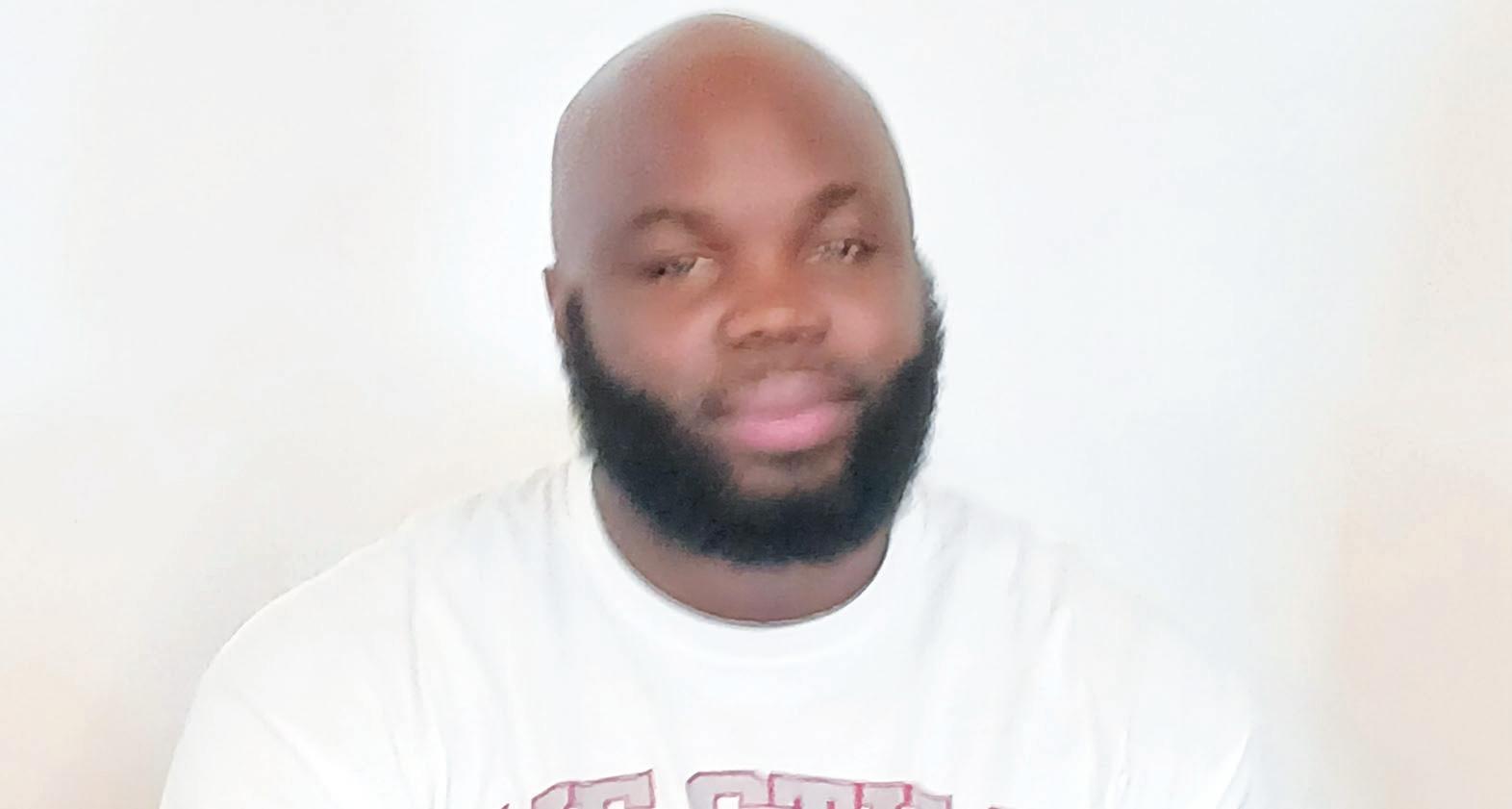José James James sings Badu Badu at Dakota
MON MAY 8, 2023 • 7PM

MON MAY 2023 • 7PM
A jazz artist for the hip-hop generation, José James artfully blurs the lines between traditional and contemporary jazz, hip-hop, soul, funk, pop and rock. He has released 11 critically-acclaimed albums in as many years, and is the recipient of both the Edison Award and L’Académie du Jazz Grand Prix. James has collaborated with many notable artists such as Flying Lotus, Robert Glasper, Lalah Hathaway, Ledisi, Aloe Blacc and Jason Moran.
A celebrated international performer, James has presented his work at venues such as The Kennedy Center, Hollywood Bowl, Ancienne Belgique and Billboard Live Tokyo, and has performed as a guest artist with McCoy Tyner, Laura Mvula and the Jazz at Lincoln Center, Melbourne Symphony and Royal Concertgebouw Orchestras.

When José James released No Beginning No End 2 (2020), a collaborative effort that paired the forwardlooking vocalist with a global all-star cast, it was apparent that the genre-defying artist was back to stake his claim as the jazz singer for the hip-hop generation. In that light his new project, On & On: José James Sings Badu finds James throwing down the gauntlet on the past 100 years of jazz singing while charting a path forward for the culture.
“It’s simple,” James explains. “Jazz singing has always been about interpreting the highest level of standards of your time. And for my generation Erykah Badu has been one of the most innovative and incisive songwriters. Her work has proven to be groundbreaking in a social, musical and artistic sense.”
The album investigates the breadth of Badu’s iconic catalog, from her groundbreaking debut album Baduizm to her contemporary masterpieces New Amerykah Pt. 1 and 2.
But make no mistake: This is thoroughly a jazz album. Conceived in the spirit of Herbie Hancock’s River: The Joni Letters, James artfully draws upon his experiences with modern masters McCoy Tyner, Robert Glasper and Flying Lotus to create a new sonic landscape through an improvisatory lens.
PHOTO CREDIT: Janette Backman
Vol. 50 No. 18• The Journal For Community News, Business & The Arts • insightnews.com Vol 50 No 1 8• The Journal For News, Business & The Ar ts • insightnews com May 1, 2023 - May 7, 2023 1 2023 - 7 2023 INSIGHT NEWS IS AUDITED BY THE ALLIANCE FOR AUDITED MEDIA TO PROVIDE OUR ADVERTISER PARTNERS WITH THE HIGHEST LEVEL OF MEDIA AS SURANCE. I N S I G H T N E W S I S A U D I T E D B Y T H E A L L I A N C E F O R A U D I T E D M E D I A T O P R O V I D E O U R A D V E R T I S E R P A R T N E R S W I T H T H E H I G H E S T L E V E L O F M E D I A A S S U R A N C E
Insight News News
I am proud of the steps we’re taking in the Twin Cities community to help people pursue what matters to them. The same goes for my teammates, as many have chosen to participate in My Environment,® one of our employee engagement initiatives.
 Lucas Giambelluca President, Bank of America Twin Cities
Lucas Giambelluca President, Bank of America Twin Cities



Page 2 • May 1 2023 - May 7 2023 1, 2023 - 7, 2023 • Insight News insightnews.com See all we’re doing at bankofamerica.com/twincities What would you like the power to do?® Bank of America, N.A. Member FDIC. Equal Credit Opportunity Lender © 2023 Bank of America Corporation. All rights reserved. We’re always looking for ways to support people’s choices in the communities we serve. That’s why Bank of America is adding charging stations for electric vehicles (EVs) to over 90 financial centers nationwide. We’re also supporting the choices our teammates make with employee rebates on EVs. Offering the community more ways to go
Former Brooklyn Center cop killed Daunte Wright Kim Potter released from prison
Kim Potter, the former Minnesota police officer who said she mistook her gun for a Taser when she shot and killed Daunte Wright in 2021, was released from prison early Monday.
The Minnesota Department of Corrections said Potter was released at about 4 a.m. “out of an abundance of caution” for Potter’s safety. The department confirmed Friday she would be released Monday from the Minnesota Correctional Facility in Shakopee, but declined to say what time due to security concerns.
Potter, a white former officer for the Brooklyn Center Police Department in suburban Minneapolis, fatally shot Wright, who was Black, during a traffic stop in April 2021. The shooting happened during the trial of Derek Chauvin, the officer who killed George Floyd, and Wright’s death set off several days of protests. She was convicted

of second-degree manslaughter and given a two-year sentence. Under Minnesota law, those sent to prison typically serve twothirds of their sentence behind bars and the remaining time on supervised release. In Potter’s case, she served 16 months of her two-year sentence behind bars, said Department of Corrections spokesman Andy Skoogman.
Skoogman said Potter will be on supervised release until Dec. 21, and she will live in Wisconsin during that time.
Potter, now 50, appeared much thinner in a new photo released last week by the Department of Corrections. Her attorney, Earl Gray, said Friday he had “no idea” why her appearance had changed.
Potter’s two-year sentence from Judge Regina Chu drew strong criticism from Wright’s family and their attorney, civil rights lawyer Ben Crump. The state attorney general’s office had sought
a sentence recommended by state guidelines of just over seven years in prison.
Wright’s mother, Katie Wright, said after the sentencing that Potter “murdered my son,” adding: “Today the justice system murdered him all over again.”
Defense attorneys argued at the sentencing hearing that Potter deserved leniency because Wright was trying to drive away and Potter had the right to defend herself. Chu said at the time that the case was not the same as other high-profile killings, including Floyd’s death, which resulted in a 22 1/2-year sentence for Chauvin.
“This is a cop who made a tragic mistake,” she said of Potter.
Wright, a 20-year-old father, was killed on April 11, 2021, after Brooklyn Center officers pulled him over for having expired license tags and an air freshener hanging
Attorney General Ellison supports limiting noncompetes in employment



Minnesota Attorney General
Keith Ellison has joined a coalition of 18 attorneys general in submitting comments to the Federal Trade Commission in support of a proposed rule that would eliminate noncompete clauses in employment contracts in most circumstances.
In November 2019, Attorney General Ellison led a coalition of attorneys general in asking the FTC to begin rule-making to classify non-compete clauses in employment contracts as an unfair method of competition and per se illegal for low-wage workers.
In January 2023, the FTC met that request by proposing the Non-Compete Clause Rule, which would largely bar employers from preventing workers from working for or starting a competing business within a certain period after leaving a job. Approximately 30 million American workers, or about 20 percent of the national workforce, are bound by noncompete clauses.
get future jobs or start your own business. It’s another example of the economy being unfairly stacked against working folks,” Attorney General Ellison said. “I’ve been fighting for years to limit the use of non-compete agreements, because doing so will make it easier for everyone to afford their lives and will unleash wealth and economic growth for every community in America. I’m pleased the FTC has proposed this rule and look forward to it taking effect as
from his rearview mirror.

Officers discovered he had a warrant for a misdemeanor weapons possession charge and he was shot during a struggle as officers tried to arrest him.

Potter said she thought she was holding her Taser at the time, not her gun. She is heard on video yelling “Taser” several times just before she fires her pistol as Wright tried to drive away.
Potter, a 26-year police veteran, apologized to Wright’s family at the sentencing hearing and spoke directly to his mother: “Katie, I understand a mother’s love. I’m sorry I broke your heart ... my heart is broken and devastated for all of you.”
Civil rights advocates say laws against hanging objects from rearview mirrors have been used as a pretext for stopping Black motorists.
House passes bill to legalize recreational cannabis, sends it to Senate
By Tim Walker House Session
Medical marijuana became legal in Minnesota in 2014, and last year the Legislature legalized recreational low-dose, hemp-derived cannabis edibles for adults.
Is the next step for the cannabis plant full legalization for recreational use?

Rep. Zack Stephenson (DFL-Coon Rapids) says it’s long overdue because the decades-long prohibition and criminalization of cannabis has not worked to make society safer and has had a devastating effect on minorities.
Minnesota House begins debate on HF100, bill to legalize recreational cannabis - part 1 4/24/23
“It’s time.
Minnesotans deserve the freedom and respect to make responsible decisions about cannabis themselves,” he said at a Monday morning press conference prior to the
“No one thinks it’s fair that your employer can have free rein to block your chance to
World’s largest HIV/AIDS healthcare provider honored legendary entertainer, activist, and humanitarian with AHF’s Lifetime Achievement Award on World AIDS Day in 2016 during its ‘Keep the Promise’ March and Concert in Hollywood AIDS Healthcare Foundation (AHF), the world’s largest HIV healthcare provider, mourns and thanks Harry Belafonte, the legendary singer and actor, activist, and humanitarian, who passed away Tuesday at his New York home at age 96.
“The world is a little dimmer today in losing such a legendary entertainer as Harry Belafonte but so much richer for having had such a tireless, lifelong humanitarian and activist for so many years. Rest easy, kind sir, after a job well done,” said Michael Weinstein AHF President. “Belafonte leveraged his considerable and deserved celebrity for a myriad of causes over his lifetime, including the fight against HIV and AIDS. It was both humbling and a privilege for AHF to thank and honor him in person for his lifetime of activism and compassion.”
In 2016, AHF honored Belafonte with its Lifetime Achievement Award

during its “Keep the Promise” World AIDS Day Concert and March in Hollywood, CA. Ever the activist, Belafonte, then 89, joined marchers for a brief but poignant portion of the march down Hollywood Boulevard. The march commemorated the millions who have died of AIDS while also serving as a reminder to the world that of the then 36.7 million people living with AIDS worldwide, only 17 million had access to lifesaving antiretroviral treatment.
Belafonte received the AHF award during the concert that followed at the Dolby Theater featuring Patti LaBelle, Common, and others who also paid tribute to the humanitarian icon.
About AHF AIDS Healthcare Foundation (AHF), the world’s largest HIV/AIDS healthcare organization, provides cuttingedge medicine and advocacy to more than 1.75 million individuals in 45 countries in the US, Africa, Latin America/ Caribbean, the Asia/Pacific Region, and Eastern Europe. To learn more about AHF, visit us online at AIDShealth.org, find us on Facebook, follow us on Instagram and Twitter, and subscribe to our Ahfter Hours podcast.
insightnews.com Insight News •May 1 2023 - May 7 2023 May 1, 2023 - 7, 2023• Page 3
CANNABIS 4
Protestors gather outside of the Hennepin County Government Center in Minneapolis, MN, April 19, 2021.
photo/Uche Iroegbu
ELLISON 4 Remembering iconic Harry Belafonte
photo/PrathanChorruangsak But Stephenson said the bulk of the more than 200-page bill is not about growing your own weed, but setting up a comprehensive, long-term regulatory framework to tightly regulate legal cannabis, including licensing commercial growers.
General Keith Ellison
by Araya Diaz/Getty Images for AIDS Healthcare Foundation (L to R) AHF President Michael Weinstein, Pamela Frank, Harry Belafonte, Shari Belafonte (in hat), Common, and Jojo.
Insight News Insight News Vol 50 No 18• The Journal For Community News, Business & The Arts • insightnews com Vol. 50 No. 18• The Journal For Business & The Arts • insightnews.com May 1 1, 2023 , 2023 - May 7, 2023 - 2023 I N S I G H T N E W S I S A U D I T E D B Y T H E A L L I A N C E F O R A U D I T E D M E D I A T O P R O V I D E O U R A D V E R T I S E R P A R T N E R S W I T H T H E H I G H E S T L E V E L O F M E D I A A S S U R A N C E INSIGHT NEWS IS AUDITED BY THE ALLIANCE FOR AUDITED MEDIA TO PROVIDE OUR ADVERTISER PARTNERS WITH THE HIGHEST LEVEL OF MEDIA AS SURANCE. News Rondo’s Fairy Godmother PAGE 6 PAGE 7 Review Carmelo’s way: 187 assassins
Lisa Miller Minnesota
Attorney
Photo
Daily
A Federal asset tax would impose another barrier to building wealth
By Lawrence Wright
Guest Commentary
President Joe Biden’s budget proposal for 2024 is out and it has some unfortunately familiar pitfalls. The President’s plan again calls for a federal asset tax, a misguided policy that would set countless American families back in their efforts to build a better life for themselves and for future generations.
Communities of color should be especially wary of a tax that, at its core, is a barrier to the American Dream.
The falsely named “billionaire tax” under President Biden’s budget plan would institute a 25 percent tax on the regular income and appreciated assets for households worth over $100
Ellison
From 3
soon as possible.”
The FTC’s proposed rule concludes that noncompetes are an unfair method of competition that can depress worker wages, reduce racial and gender equality in workplaces,
Cannabis
million. A federal asset tax would be an additional burden to families looking to build generational wealth and would mean that smart investments families make today could be targeted by the IRS tomorrow. The Biden Administration is mistaken in pushing this proposal as a tax that only targets the elite of the elite. The President’s plan would impact many family-run businesses that act as the glue for local communities across Minnesota and the country. Taxing unrealized gains means taxing assets that are not cash based—they may increase in value on paper, but the profits haven’t actually been sold (or realized). Families in many cases would have to sell their land, equipment, and other possessions just to cover the new tax burden. This would be
and create legal hurdles for employees looking to grow their careers. Currently, the legality of such noncompete agreements is left to the states, creating confusion for workers and distorting labor markets that cover more than one state. Low and middle-wage workers would benefit the most from this proposed rule, with a high potential for increases in wages and job mobility.
a huge loss to minority groups trying to build up what we have historically been denied. Black Americans already face unfair barriers to building wealth. For example, one of the key ingredients to building wealth in America is home and property ownership. Yet, Black homes are chronically undervalued, often by as much as 23 percent. This accounts for a total lost wealth of $156 billion for Black families. This is in addition to the existing disparities in income and education between Black and white Americans. In Minnesota, the median income for Black households is about $35,000 lower than that of white households, while the percentage of Black Americans in our state with less than a high school diploma is among the highest in the nation. These
The proposed rule would also promote gender and racial equity, as studies have found that noncompete clauses cause women and non-white workers to see earnings reductions two times greater than that experienced by white male workers. In their comments, Attorney General Ellison and the coalition also note that the elimination of non-competes would benefit business and the economy as a
What’s in the bill?
losses compound over time and the effect is devastating. For example, Black Americans have a harder time starting our own businesses in the U.S. because of longstanding barriers to building wealth. A recent Brookings Institute study found that the median net worth of white families in America, as of 2019, was 7.8 times that of Black families. With the amount of up-front capital needed to start a new business, it is no surprise then that only 2.3 percent of businesses in America (those with more than one employee) were Black owned at the time of the study.
Every effort should be made to empower marginalized groups to succeed and build upon the fruits of our labor. Instead, taxing unrealized gains would tear down this success and put even more stress on an already
whole, as non-competes restrict entrepreneurship and start-up activity.

They also emphasize that the rule will particularly improve conditions in the healthcare industry, which is becoming increasingly concentrated in fewer employers in the United States. Noncompetes are widely used in the healthcare industry and restrict entry of health care workers into
hostile business environment for Black entrepreneurs and business leaders.
Considering the unique hurdles Black businessowners already face to get operations off the ground, we should not subject them to the intense level of IRS scrutiny that would be required to implement a federal asset tax.
Business-owners would have to dedicate time and resources to challenging the government’s valuations.
Not to mention the fact that the tax would essentially penalize their successes by raiding long-held assets. Homes, small businesses, farms, you name it—if you put the work in to build your wealth, the government wants a piece of it. Ethnic and racial minorities would feel the effects of this tax as it siphons off wealth to
their employment market, which inflates prices and decreases wages.
In their comments, Attorney General Ellison and the coalition support the FTC’s definition of “noncompete clause,” support the Commission’s broad definition of “worker,” and urge the Commission to clarify that the proposed rule does not overtake similar laws at the state level
Washington that could instead be left to circulate in and build up our historically disadvantaged communities. In other words, billions more in lost wealth would pile up.
Communities of color are often disproportionately impacted by misguided laws. Policymakers must consider the potential unintended consequences of their decisions. In the case of the federal asset tax, minority and ethnic groups would face even greater difficulty in reaching their own American Dream. Senator Amy Klobuchar will have failed to adequately represent these communities if she lets this policy go unchallenged. Lawrence Wright is a member of the DFL African Caucus and is a Sanneh Foundation Board Member.
that provide similar or greater protections to workers. In filing the comment letter, Attorney General Ellison joined the attorneys general of California, Colorado, Delaware, the District of Columbia, Illinois, Maine, Maryland, Massachusetts, Michigan, Nevada, New Jersey, New Mexico, New York, Oregon, Pennsylvania, Rhode Island, and Washington.
anticipated House debate on HF100, which would legalize recreational cannabis for adults.
The House passed the bill 71-59, as amended, when it reconvened Tuesday after members halted discussion late Monday. Its next stop is the Senate, which plans to debate the proposed legislation Friday. Stephenson is confident that body will also vote in favor of legalization.
And because Gov. Tim Walz has said he would sign such a bill into law, adults could enjoy a joint without worries of being arrested, Stephenson said.
That’s because one of the bill’s provisions would allow homegrown cannabis plants, therefore, a joint filled with leaves from a homegrown plant could be legally smoked this summer, he said.
From 3 From Insight News is published weekly, every Monday by McFarlane Media Interests.

Editor-In-Chief Al McFarlane
Publisher Batala-Ra McFarlane
Associate Editor & Associate Publisher B.P. Ford


Culture and Education Editor Dr. Irma McClaurin, PhD.
Associate

But Stephenson said the bulk of the more than 200page bill is not about growing your own weed, but setting up a comprehensive, longterm regulatory framework to tightly regulate legal cannabis, including licensing commercial growers, distributors, and retailers, fund prevention and addiction recovery programs, and provide grants to law enforcement and courts.
In other words, he said, it will be at least a year after enactment before cannabis retail dispensaries will come about.
The bill would appropriate $73.4 million in the 2024-25 biennium, but because revenue from licensing fees and a cannabis sales tax of 8% on top of existing sales taxes would begin to come into the state’s coffers in 2026, no money would be appropriated beginning in fiscal year 2026.
Over the long run, the bill is more than selfsupporting, he said.
Introduced in January, the bill was reviewed and approved by 16 committees before reaching the House Floor. In its current version, it would permit a person age 21 or older to:
possess up to 2 ounces of cannabis flower in a public place or 1.5 pounds in a person’s residence;
possess or transport no more than 8 grams of adultuse cannabis concentrate;
possess or transport edible products infused with up to 800 milligrams of THC;
give away cannabis flower and cannabinoid products in an amount that is legal for a person to possess in public;
use cannabis flower and cannabinoid products in private areas; and
cultivate up to eight cannabis plants, of which four or fewer may be mature, flowering plants.
Many changes to state
statutes, agencies The bill would make significant changes in many parts of Minnesota law by:


creating more than a dozen types of licenses for growing, selling, transporting and testing cannabis;
creating an Office of Cannabis Management to regulate cannabis and take enforcement actions;
taxing cannabis retail sales at 8%, in addition to any already imposed local or state taxes;
creating and funding programs to combat cannabis abuse;
creating grants to assist individuals entering the legal cannabis market;
eliminating criminal penalties for cannabis possession; and
expunging the criminal records of people previously convicted of lowlevel cannabis offenses. There would be several legal limits on marijuana use, and civil penalties
for violating those limits.
Adults would be prohibited from using cannabis in state correctional facilities, operating a motor vehicle while under the influence of cannabis, giving cannabis to a person under the age of 21, or giving cannabis as a promotional gift.
Republican opposition
Republicans also held a press conference Monday morning, where they outlined objections to the bill, which it is expected they will raise again in debate on the House Floor and in offered amendments.
Rep. Kristin Robbins (R-Maple Grove) is concerned the bill would not allow local governments to tailor regulations and licensing fees to offset local costs they say would come with legalization, especially in local law enforcement and public health.
“Cities want the ability to regulate the number of licenses in their jurisdiction,” she said, adding the bill is flawed because it prohibits cities from revoking cannabis retail licenses if problems develop.


Since the 1970s,
the potency of cannabis has increased significantly, Robbins said, and that these high concentrations of tetrahydrocannabinol –THC, the main psychoactive component of cannabis –would put young people using cannabis at “severe risk” of damaging their still-maturing brains. “There are increases in anxiety, depression, psychosis,” she said.
Local control
Rep. Jim Nash (R-Waconia) offered an amendment that would allow cities to prohibit cannabis businesses from operating within city limits if residents vote to do so. Stephenson said there is a good amount of local control in the bill, but giving cities and counties the power to completely prohibit cannabis retail stores would just allow the illicit market to flourish. A major reason for legalization, he said, is to eliminate the illegal market for cannabis.
Page 4 • May 1 2023 - May 7 2023 1, 2023 - 7, 2023• Insight News insightnews.com
Commentary
Editors Afrodescendientes Jesús Chucho Garcia Mestre Yoji Senna DaBahia Columnist Brenda Lyle-Gray Book Review Editor W.D. Foster-Graham Sports Editor Leahjean M. Denley Content & Production Manager Sunny Thongthi Yang Distribution/Facilities Manager Charles Royston Receptionist Lue B. Lampley Intern Naomi Thomson Photography Uchechukwu Iroegbu Lou Michaels Roy Lewis - Washington D.C. Artist Donald Walker Contact Us: Insight News, Inc. Marcus Garvey House 1815 Bryant Ave. N. Minneapolis. 55411 Ph.: (612) 588-1313 Fax: (612) 588-2031 Member: Minnesota Multicultural Media Consortium (MMMC) Minnesota Newspaper Association (MNA) National Newspaper Publishers Association (NNPA) Postmaster: Send address changes to McFarlane Media Interests, Marcus Garvey House 1815 Bryant Avenue North, Minneapolis, INSIGHT NEWS www.insightnews.com 612.377.2224 guthrietheater.org Sunday, May 7 • 11 a.m. – 3 p.m. 60TH ANNIVERSARY OPEN HOUSE Sponsored by Join us for a community-wide event at the Guthrie brimming with fun and festivities for all ages, including backstage tours, education classes, theater games and more. Everyone is welcome! FREE PARTTIME DISTRIBUTION ROUTEDRIVER Onetotwodaysperweek. $15perhour. Validdriver'slicenserequired. Calltoapply 612-695-0417 WEARE HIRING
Guthrie Theater open house celebrates 60 years
The Guthrie Theater will host a 60th Anniversary Open House on Sunday, May 7, marking 60 years to the day that the theater opened in 1963. From 11 a.m. to 3 p.m., the family-friendly event will feature directing demonstrations, drop-in classes, pop-up story time, theater games for youth, coloring and craft stations and self-guided backstage tours that highlight the Guthrie’s expansive inhouse production shops where plays leap from page to stage.

This event is free and open to the public. Accessibility services, including courtesy wheelchairs, a quiet space, ASL interpretation by certified interpreters and audio description for guests who are blind or have low vision, will be available. For an up-to-date schedule of events, visit www. guthrietheater.org/openhouse
“When the Guthrie first opened its doors in 1963, it was met with tremendous
support from all corners of Minnesota,” said Artistic Director Joseph Haj. “Without the steadfast loyalty of our artists, audiences, donors, board, staff and volunteers, the Guthrie would not have been able to achieve this outstanding milestone. It is an honor to share this tremendous achievement with our entire community.”
The first 1,000 open house guests will receive a complimentary copy of The Guthrie Theater: Images, History and Inside Stories by Peg Guilfoyle, edited by Sheila Livingston. The event will kick off with opening remarks by Haj on the Wurtele Thrust Stage. From there, guests may curate their own experiences through a variety of scheduled and ongoing programming.
Scheduled Activities
Directing demonstrations place you in the shoes of a director as you
observe the process of finetuning select scenes from The Importance of Being Earnest and A Christmas Carol
Drop-in education classes provide an opportunity for guests to learn the fundamentals of the Alexander
movement technique, stage combat and an empowering music and dance experience known as Slay. No experience
Effort to clear the records of Minnesotans previously convicted of nonviolent cannabis offenses

necessary.
Theater games for youth offer an outlet for even the youngest artists to learn about improvisation, storytelling and working with an ensemble.
History of the Guthrie takes you on a journey through the decades, highlighting some of the most impactful Guthrie moments of the past 60 years.
Ongoing Activities
Self-guided backstage tours
Coloring and craft stations
“Record a Guthrie Memory” station
Cannabis legalization allies conduct RISE UP expungement support workshops
Panel discussions with local policy experts and directly impacted community members were held last Wednesday downtown at the Minneapolis Cental Library in Minneapolis, and at St. Paul’s Ujaama Place on University Ave.
The Great Rise and coalition allies heldMetro area Expungement Support Workshops that were inspired by the cannabis legalization effort in Minnesota and its stated goal of achieving the most equitable cannabis market in the nation. Organizers said an equitable market cannot be achieved without addressing the war on drugs and the role that targeted cannabis criminalization has had on individuals and families throughout the state.
The workshops seek to permanently expunge the records of individuals convicted of nonviolent cannabis offenses and other low level offenses that may otherwise limit a person’s ability to access housing,
jobs and/or participate in the emerging cannabis market in Minnesota.
Panelists included Jason Sole, Zede Harut, Michael Ford, and Rod Adams. Panel moderators were Angela Dawson and Anthony Newby.
● According to data from the Minnesota Bureau of Criminal Apprehension, police made arrests for marijuana crimes 6,055 times in 2021, with nearly 90% of cases for charges of simple possession.
● A report from the American Civil Liberties Union shows that across the country, Black individuals were an average of 3.6 times more likely to be arrested for pot. Minnesota’s discrepancy exceeds the national average.
● State data shows that a Black Minnesotan is nearly five times more likely to be charged for a marijuana-related offense than a white one. The racial disparity exists despite other evidence that shows that rates of
cannabis use are relatively equal among the two racial groups.
● Minneapolis and St. Paul showed the highest racial disparity in marijuana charges compared to other areas of the state. Black residents were nearly eight times more likely than white residents to be charged with a pot offense in Hennepin and Ramsey counties last year.
RISE UP
Expungement Support
Workshops are a no-cost series of events coordinated by The Great Rise, which relies on a team of volunteers to help facilitate these clinics. The organization is seeking lawyers with expungement experience, and notary, or other volunteers who want to help staff future workshops.
For more information:
The Great Rise President and Founder Angela Dawson, angela@thegreatrise.org, 612.704.1066 For interviews with other coalition members, volunteers, or directly impacted
Minnesota Humanities Center awarded competitive NEH grant to examine military service at the margins
Minnesota Humanities Center (MHC) has been awarded $100,000 for its project, “Examining Military Service from the Margins” which will encourage Veterans and community members to consider the experiences of women, LGBTQA, American Indian, ethnic minorities, and immigrants. MHC was one of three recipients to receive a grant from the National Endowment of the Humanities (NEH) Dialogues on the Experiences of War Program which supports the study and discussion of humanities sources that address the experiences of military service and war from a wide variety of perspectives.
“NEH grants are highly competitive, MHC was the only state humanities council among the 258 awards by NEH this cycle to receive a grant and we feel
very fortunate,” said Kevin Lindsey, CEO of MHC. Lindsey continued, “I also want to extend congratulations to Hallie Q. Brown Community Center for its NEH Humanities Collection and Reference Resources grant and Dr. Averill Earls for her NEH summer stipend.” This is the third time MHC has been awarded a “Dialogues on the Experience of War” grant for their work with Veterans. Leading this initiative is U.S. Army Veteran and educator Miki Huntington and MHC humanities officer and historian Karen Sieber.
Contributors to the project will include scholars from around the country including Dr. Beth Bailey (University of Kansas), Dr. Charissa Threat (Chapman University), Dr. Mael Sheridan Embser-Herbert (Hamline University and U.S. Army), Dr. John A. Little (University of
South Dakota). Contributors will also include local scholars such as David Mura, noted memoirist, poet, and documentary producer, and MHC’s Veterans Advisory Board. Discussion groups will take place in 2024 at University of Minnesota Urban Research and Outreach-Engagement Center (UROC), Winona County Historical Society, and Minnesota State UniversityMankato. In 2025, MHC will explore national expansion of the program via digital methods and partnership with the Clement and Linda McGillicuddy Humanities Center in Maine and African American Military History Museum in Hattiesburg, Mississippi. MHC ultimately wants to build a flexible framework that can be easily replicated yet locally tailored anywhere within the United States.

Leslie Parker Dance Project’s Divination Tools: imagine home

Announcements will be made in late 2023 to recruit participants and paid discussion leaders. For more information, contact Karen Sieber at karen@ mnhum.org.
About the National Endowment for the Humanities
Created in 1965 as an independent federal agency, the National Endowment for the Humanities supports research and learning in history, literature, philosophy and other areas of the humanities by

funding selected, peer-reviewed proposals from around the nation. Additional information about the National Endowment for the Humanities and its grant programs is available at www. neh.gov.
About the Minnesota Humanities Center The Humanities Center connects our past, present, and future by bringing people together to increase understanding and spark change.
Using story as a catalyst and the humanities to explore the question of what it means to be human, MHC seeks to create a just society that is curious, connected, and compassionate. MHC, founded in 1971, is a statewide nonprofit organization affiliated with and supported by the National Endowment for the Humanities. MHC operates a full-service Event Center in a historic building on St. Paul’s East Side. More information is available at mnhum.org.
insightnews.com Insight News •May 1 2023 - May 7 2023 May 1, 2023 - 7, 2023 • Page 5
“Ask Us” informational booths Interactive photo booths Guthrie artifacts on display Pop-up story time Prize giveaways Food trucks
Guthrie
community members, contact Anthony Newby, The Great Rise & Cultivated CBD, Anthony@ thegreatrise.org, 612.327.9453
photo/Paul Battaglia
Supporters of marijuana legalization gathered on the Capitol steps in May 2021. The House Ways and Means Committee approved HF100, a bill to legalize recreational marijuana, April 17 and rereferred the bill to the House Floor.
May 11–13 GET TICKETS
Image courtesy of Leslie Parker and Joshua B. Alafia.
St. Paul–based choreographer Leslie Parker leads a powerful collective of Black visual artists, musicians, and femme dance artists in a liberating world premiere performance.
Elite female athletes dominate the headlines
 Sports Editor
By Leahjean M. Denley, MBA
Sports Editor
By Leahjean M. Denley, MBA
Hey everybody, it’s your homegirl CoachLeahTM! Is it just me that has noticed… Or is it, for the first time in the history of the world, that women’s basketball - women’s sports in general - has been dominating media headlines not just in the sports world, but mainstream media. Women’s basketball topics are everywhere I seem to look - on network television, social media, radio, and general conversations
with friends as well as complete strangers.
From record breaking attendance and viewership of the 2023 Women’s Final Four that drew an average of 9.9 million viewers, making it the most viewed NCAA women’s basketball final in television history according to ESPN, a Saturday Night Live mention of the Iowa Women’s Basketball team and spoof of LSU’s superstar and tournament MVP, Angel Reese, to countless interviews and hot topics by widely viewed networks - ABC, CBS, NBC, FOX , and of course, ESPN, to award winning podcasts like “The Pivot,” “Jemelle Hill is Unbothered,” and “Jalen Rose Renaissance Man.” All have dedicated thought, time,

and space to discuss women’s basketball dominated by this newfound fascination with elite, female athletes. Even Shaquille O’Neal, an LSU alum, recently proclaimed this about Angel Reese on his, “The Big Podcast.” “She’s probably the greatest athlete to ever come out of LSU sports. You heard it here first. Male and female,” said Shaq. “She delivered. She delivered that package. See, a lot of us got the package, and we still got the package in our truck. She delivered that package.”
Many of us know that it’s not a newfound “phenomenon,” but I will say that we’re in a remarkably interesting time for women’s sports. As a former female athlete that is currently career coaching and advocating for
female executives in maledominated industries and spaces, I feel like we definitely need to ride this wave – that has morphed into a tsunami – or a downpour hovering slowly like Hurricane Harvey back in 2017. Uh-hum (clearing my throat )… Now that we have your attention, let’s show you the relevance of the elite, female athlete’s impact lately. But before we do, let me take a pause right here to remind everyone that right down I-45 in Houston, there WAS a Men’s NCAA Final Four Championship game played one day after the women’s game. Not as well attended… record low viewership… but “one shining moment,” nonetheless. Congratulations to UConn men’s basketball for bringing
home their fifth national championship.
Shout out to National Champion UConn alum and star point guard, North Minneapolis’ own Khalid El-Amin.
However, just as soon as we make mention of Connecticut’s win, the relevance of elite, female athlete’s impact has never more evident than when the headline from that story turns the focus back to the women, “Cousins win

NCAA Championships – Jordan Hawkins and Angel Reese.”
Recently, the pair even shared a surprise reunion on ABC’s Good Morning America during Angel Reese’s in-studio interview.
Although I like to call it a “triple threat,” as a woman, and as a Black woman, and as a tall Black woman, I am a “triple
minority” - living my life having to dispel so many myths and biases. I am grateful for this time in the “mainstream”… for this opportunity for everyone –globally - to see us and to realize how absolutely amazing we are - not just as athletes, but as the overachieving, trendsetting, phenomenal, valuable, and culturally enriching members of society that we are. Why do you think elite female athletes are garnering so much attention as of late? Email your thoughts to CoachLeah@InsightNews. com. For your response, your name will be entered into the Insight News – Sports Grand Prize Drawing. Also, stay on the lookout for the premiere episode of “CoachLeah’s After the Whistle” – The Vodcast.
Rondo’s Fairy Godmother
Tooth Fairy Candy Store, 861 Selby Avenue, last Wednesday celebrated its grand opening in St. Paul historic Rondo Neighborhood.

Launching as a passion-work and business venture for Arreta-Rie Johnson, who was born and raised in this storied community, Tooth Fair Candy Store is the latest outgrowth of a mission Johnson has pursued her entire live. It is a retail presence which is companion to D.I.V.I.N.E.
Institute Johnson got the idea to open the shop through an organization she started to help neighborhood kids. initially emerged from a need to engage inner-city youth in the summer by working on their vocabulary and manners.
In a television news report, Johnson told KARE 11 reporter Charmaine Nero,”I started D.I.V.I.N.E many years ago — about 28 or 29 years ago. Our bottom line is to inspire youth to learn, and so I started it as an advance vocabulary for youth; it evolved into a group
home.”
She said, “This building has been a part of our family for 40 years. I was in a position to purchase the building; we needed an office for D.I.V.I.N.E and I had to have the building because of the history.”
Johnson said, “I wanted the girls to see what it’s like to see the beginnings of opening a business to see how to open a business.”
She told Nero, “I always said if I owned a candy store, I would name it Fairy Godmother — that’s what the girls call me in the community.”
She said, “We want this to be a fun and inspiring place for youth and we want them to eat sweets responsibly.”
According to its website, D.I.V.I.N.E. Institute initially emerged from a need to engage inner city youth in the summer by improving their vocabulary and manners.
In 1995, Aretta-Rie Johnson started teaching her children advanced vocabulary words and the rudiments of etiquette.

Family members began to ask
if their children could attend and each summer it grew to the extent of moving into the basement of a local church.
The summer program participants would always ask to spend the night and parents began suggesting D.I.V.I.N.E. open a boarding school. After much contemplation and consulting, D.I.V.I.N.E. purchased a home in the Midway area of St. Paul and began the process of becoming a state-run emergency shelter and group home. In September 2017, D.I.V.I.NE. Intervention opened its doors to girls 12 - 17 years old.
The Mission: To elevate the interpersonal development of youth through literacy and enrichment initiatives which foster life-long learning.
The D.I.V.I.N.E. Intervention program is a cultural enrichment program designed to highlight the strength and underscore the talent of girls with challenging behaviors and truancy issues. The program aids girls with achieving the direction, identity, and critical consciousness which leads to positive selfesteem, relationships with others, greater ethnic pride, and higher expectations for future accomplishments.
Obituary: Archie Givens Jr.
Archie Givens Jr. age 78, died April 19, 2023 following a long illness with Alzheimer’s disease.
Givens was president of Legacy Management & Development Corporation, which created signature development projects to strengthen community, including Heritage Park in North Minneapolis, the Rondo Community Library in St. Paul, and senior living developments across the Twin Cities.

Twin Cities PBS said Givens was a good friend of the station and will be remembered for his philanthropy, humanitarianism, and business acumen.
The University of Minnesota Libraries heralded Givens as a businessman and philanthropist who served as an advocate and champion of the University of Minnesota and the Libraries. Givens and his family led fundraising efforts that in 1985 enabled the University of
Minnesota Libraries to purchase
what would become the Archie Givens Sr. Collection of African American Literature, in memory of his father.
Givens Jr. and his wife, Carol Meshbesher, continued their support of the Collection as principals of the Givens Patrons Council, which also included his mother, Phebe Mae Givens, and his sister, Roxanne Givens. The Givens Collection consists of books and archival materials that document the history of Black literature and culture — correspondence, pamphlets, screenplays, newspaper clippings, photographs, sheet music, and ephemera, including the Penumbra Theatre Company Archives and the papers of civil rights activist and former member of the University of Minnesota Board of Regents Josie Johnson. Among his many
contributions to the University of Minnesota, Givens Jr. served on the Friends of the University Libraries Board and was president of the University’s Alumni Association. He was an alumnus and played cornerback on the U of M football team. Givens was preceded in death by his daughter, April; niece, Brittany; and parents, Archie Givens Sr. and Phebe Mae (O’Shields) Givens. Survived by his loving wife of 36 years, Carol Meshbesher; daughter, Sunny Givens (former husband Connie); grandchildren, Brandon (Amy) Meshbesher and Skyler Harvey; sister, Roxanne Givens; niece, Rachael Givens; and great- nephew, Christian Givens Darst. Memorial services were April 30, 2023 at Temple Israel, 2323 Fremont Ave. So., Minneapolis.
Page 6 • May 1 2023 - May 7 2023 1, 2023 - 7, 2023 • Insight News insightnews.com
NCAA.com, NCAA Winner UConn ESPN NCAA Champs
NCAA.com
Jordan Hawkins and Angel Reese
Lou Michaels photographer for Insight News Media
U of MN
In front of the candy store at 861 Selby Avenue with the Mayor Melvin Carter and the owner of the Tooth Fairy Candy Store Arreta-Rie Johnson.
Archie Givens Jr.
By: W.D. Foster-Graham Book Review Editor







CARMELO’S WAY

187 Assassins By A.G. Deberry


Life on the street can have the illusion of a certain kind of success, and at the same time it’s no crystal stair. In the genre of urban fiction, I present to you
A.G. Deberry’s Carmelo’s Way: 187 Assassins. Our central character, Carmelo (Menace) Graham, is a 17-year-old brotha who can barely put two nickels together, living with several family members under one roof. On top of that, he is having three children by three different women. He also carries a legacy of a murder he committed as revenge for the death of a childhood friend, which gave him the street name Menace.

Along comes Brian (B-Dog) Williams, who gives him the opportunity to go into the drug business, mentoring him on the ins and outs of the trade, who to trust, and what to say if picked up by the police. As time passes, their business



 Deberry
Deberry
way: 187 assassins



relationship and their friendship solidifies. Though the grass seems to be greener in terms of money, material possessions, and the ability to support his children and his increasing number of baby mommas, the weeds are there as well-the stark reality of enemies, dirty deals, and the constant life-endangering situations. In revenge for a killing, Carmelo puts together the 187 Assassins, in it for the business of supporting their families but not gangbanging. Although he maintained his neutrality, he is witness to gang initiations, and he is given a sobering reminder that leaving the drug trade, and a gang, is far more difficult than getting into it…
Deberry gives us a picture of the realities of street life, gang rivalry, and the dysfunctional elements of the life Carmelo leads. He doesn’t show Carmelo as a onedimensional, heartless villain and deadbeat dad. Rather, in this brotha who is barely out of his teens, we see someone who is committed to providing for his families although he doesn’t spend much quality time with them, someone who handles his business yet doesn’t wish to be associated with any gang. Indeed, Carmelo is a more complex character.

In reading Carmelo’s

Way, Deberry leaves no doubt that this story is set here in the Twin Cities; as a native of south Minneapolis, I recognized all the locales he described. I was also reminded of how much Minneapolis has changed since my childhood in the 1950s. His descriptions of the lives of Carmelo and those around him are vivid and raw. Although weakness, vulnerability, and tenderness are something men dare not show in this world, he takes the opportunity to show them from time to time in his characters, which makes them more compelling.

Carmelo’s Way is available through Amazon, Deberry Publishing, and Minnesota Black Authors Expo. Thank you, A.G., for a most intriguing work of urban fiction. Readers, stay tuned for the sequel.


insightnews.com Insight News •May 1 2023 - May 7 2023 May 1, 2023 - 7, 2023• Page 7
Sharing Our Stories
Carmelo’s
A.G.
As we spend more time indoors, here are some important reminders: GET VACCINATED For more information, visit northpointhealth.org/covid Scan this QR code for more vaccine information FOLLOW VACCINATION GUIDELINES GET VACCINATED IN PUBLIC INDOOR SPACES WEAR A MASK IF YOU HAVE SYMPTOMS OR EXPOSURE TEST YOURSELF 612.332.5299 dakotacooks.com 1010 Nicollet Mall Minneapolis, MN RONNIE FOSTER Organ Groove Master PETER ROWAN BLUEGRASS BAND Bluegrass & Roots Legend KAVYESH KAVIRAJ QUINTET Dynamic Modern Jazz HIROMI Transcendent Jazz Visionary NICHOLAS DAVID – SWING INTO SPRING feat. Dylan Nau & Mac Santiago MY WAY–ANDREW WALESCH SINGS SINATRA Sinatra Songbook Reimagined SONDRE LERCHE Atmospheric Pop SOPHIE B. HAWKINS Powerful Pop Storytelling KEIKO MATSUI Euphoric Contemporary Jazz KARRIN ALLYSON – BRAZILIAN NIGHTS Sass & Class Vocal Jazz MAY 11 MAY 13 MAY 15 MAY 17-18 MAY 20 MAY 19 MAY 21 MAY 12 MAY 14 MAY 16 SUNDAY, MAY 14 SOUTHSIDE ACES 11:30AM MOTHER’S DAY DINNER • KEIKO MATSUI 7PM
2. That the Governor hold his appointed State Commissioners and the state departments they lead accountable for measurable and reportable processes and strategies to eliminate disparities that exist in and that are supported by policies and procedures of state governance.
3. That the Minnesota Legislature prioritize intentional solution making that can occur when Legislators, Committee Chairs and Committees engage Minnesota’s Black community at the table of decision.
4. Housing Invest now in multiple housing options for the Black community to close the home ownership gap.
Multiple housing options are an important part of any community. It provides a safe and affordable place for people to live and can help reduce poverty and homelessness. However, there are many challenges associated with providing low-income housing, such as limited resources, high demand, and the need to ensure that the housing is safe and secure. Minneapolis has one of the widest homeownership gaps in the country between whites and Blacks.
new businesses among all races do not receive any outside investors. Most people use the equity in their homes to start their firms. This is a huge disadvantage to Black folks in Minnesota because of the home ownership gap. Further, the report stated that minority owned businesses experience higher loan denial probabilities and pay higher interest rates than white-owned businesses even after controlling for differences in credit-worthiness, and other factors. Limited access to investment capital in its many forms is inextricably linked to systemic discrimination in lending, housing, and employment. It cripples Black business development.
2. Employment Invest now in creating employment opportunities for the Black community
In an article published by the Urban Institute, the issue of Black employment was addressed.



It stated that, “while many are heralding the drop in the national Black male unemployment rate, which recently fell below 10 percent for the first time in seven years, joblessness remains much higher in many poor African American communities. It stated that for many low-income Black men, finding and keeping work is a constant struggle, never far from their minds. Black job applicants might not even make it into the queue if they have had an encounter with the criminal justice system. Helping Black folks secure steady employment at decent wages will require resources to break down the institutional barriers that separate people from decent job opportunities and to enable Black people to build the skills needed for well-paying jobs
3. Public Safety
Invest now in Public Safety in the Black community.
Public safety exists to protect citizens, organizations, and communities by preventing them from being in danger and guarding their well-being. Abraham Maslow defined safety in his famous “Hierarchy of Human Needs“. He said that to function as a society public safety is needed. He said this safety goes beyond just physical safety but also safety when it comes to health, money, possessions, and family. Less we forget, there’s an Emotional Impact on Public Safety. When folks feel unsafe, it could have major effects on individuals, their loved ones, and the community they live in. Violence has been way to prevalent in the inner cities of Minneapolis and St. Paul. Playgrounds are unsafe, the streets are unsafe, and the shopping malls are unsafe.
5. Education
Invest now in ensuring that our Black students are educated at the same level as White students.
Dr. Sinclair Grey lll stated that education is without a doubt crucial to the success of our students competing for jobs. Quality education that enforces and reinforces math, science, writing, and cognitive thinking will separate those who desire a prosperous future from those who are simply content with getting by. Yet, in Minnesota, reading test scores for Black students are over 20 points below state average and math test scores are 20 points below state average. Minnesota ranks 50th in the nation for Black students who graduate on time. Minnesota has one of the worst college-readiness gaps in the nation by race and ethnicity – only 25% of Black students are prepared for college. Thus, Black students who attend college must take significantly more remedial courses than their peers as their starting point.
6. Health & Wellness
Invest now in efforts that will impact the health and wellness of the Black community.
The Black community is faced with escalating social, economic, and life-style problems, which threaten the life and well-being of current and future generations of Black people in crisis proportion. The rising number of deaths due to heart disease and stroke, homicide and accidents related to substance abuse, AIDS, cancer, and infant mortality are among the leading culprits. They interfere with prospects of longevity and contribute to joblessness, poverty, and homelessness and further complicate the crisis in the Black community. The magnitude of the problems dictates the need for support from the Minnesota State Legislature.
7. Policy Each member of the legislature, regardless of political affiliation, is involved in setting public policy. These policies should reflect the will of the people and is carried out by those elected to vote. Because of conflicting interests and capacities, some policies have disenfranchised the Black community. There is therefore a need for coherence of interest/capacities in an attempt to pass policies that reflect the needs of the Black community.
Every time another national “quality of life” is broadcast or published about the best places to live in the U.S., Minnesota and the Twin Cities always rank at or near the top. The Atlantic’s Derek Thompson once referred to this as the miracle of Minneapolis.” Likewise, every time those lists are parsed out further, the state and the metro fall all the way to the bottom when it comes to quality of life measures for Black people, or, what some have called the “Two Minnesotas.” But to ensure that all those in our state have the opportunity to thrive, we cannot forget about the communities that have been systematically abused, persistently underrepresented, and long underserved.
Minnesota is now the seventh (7th) worst state in the country for Blacks to live. This dubious recognition alongside the May 2020 murder of George Floyd has brought the State into an era of racial reckoning and has put racial inequity at the center of the national conversation, and Minnesota on the racial map. Today Black folks are more than twice as likely as their white counterparts to live below the poverty line. Additionally, the typical Black household earns just 63 cents for every dollar a typical white household earns, and African American workers are more than twice as likely to be unemployed as white workers.
Using data from the U.S. Census Bureau, 24/7 Wall St. created an index to measure socioeconomic disparities between Black and white Americans to identify the worst states for Black Americans. High on the list of cities that have extremely troubling disparities is Minneapolis-St. Paul. Minnesota’s urban core boast these disturbing rates:
• Black population: 290,210 (8.2% of total)


• Black median income: $36,127 (44.0% of white income)
• Unemployment: 9.2% (Black); 3.2% (white)




• Homeownership rate: 25.2% (Black); 75.5% (white)
• Black poverty rate of 28.3% in the metro area, 5.9% (white)
• Black medium household earn $36,127 a year — the median income among white area households is $82,118.
The profound racial wealth gaps for Blacks in Minnesota is structural, as they are across the United States. Structural racism is inherent in intersecting and overlapping institutions, policies, practices, ideas, and behaviors that give resources, rights, and power to white people while denying them to others. The roots of racial wealth gaps can be traced back centuries through racialized public and private policies and practices, which fueled economic boosts to white families that allowed for intergenerational wealth transfers and created barriers to Black families. Past discrimination and injustices accumulate and build across generations, making it hard for communities that have been harmed to catch up. As one example, the losses from unpaid wages and lost inheritances to Black descendants is estimated at around $20 trillion today. The NAACP Twin Cities 2019 Economic Inclusion Plan states: “There are two Minnesota’s, one white, one Black – separate and unequal.”
Data from the 2019 Prosperity Now Scorecard shows that 40% of Americans are liquid asset poor—meaning they do not have enough in savings to make ends meet at the poverty level for three months ($6,275 for a family of four in 2018). This problem is even more stark when disaggregated by race. 31.7% of white households are liquid-asset poor compared to over 62% of Black households.
Recent trends in Hennepin and Ramsey Counties are moving in the wrong direction. The share of Black families who own a home has declined from 31 percent in 2000 to 21 percent in 2018. The racial homeownership gap in the Twin Cities is the highest in the nation and has only widened over the past two decades, especially in neighborhoods where investors have acquired hundreds of single-family homes to now use as rentals, according to a June 2021 report from the Urban Institute.
Page 8 • May 1 2023 - May 7 2023 1, 2023 - 7, 2023• Insight News insightnews.com BLACK MINNESOTA PRIORITIES • Equity in distribution and stewardship of resources • Advancing innovation and collaboration in problem solving • Upending traditional systems • Bringing the voices of community front and center THE URGENCY OF NOW! • Minnesota’s record budget surplus enables addressing disparities in a meaningful way •We demand genuine inclusion in the resource allocation process •We must outline, up front, what this inclusion looks like THREE STEPS BACKGROUND INVEST NOW! 2023 UNITED BLACK LEGISLATIVE AGENDA 1. That Minnesota governor Tim Walz, meets with representatives of Minnesota Black communities t0 affirms Minnesota’s commitment to prioritize disparities elimination in all aspect of Minnesota governance and administration. 1. Business and Economic Development Invest now in Black folks and their abilities to create businesses in the community. An article published by the Brooking Institute stated that the underrepresentation of Black businesses does not come from a lack of will or talent. Rather, the underrepresentation of Black businesses encapsulates a myriad of structural barriers underscoring America’s tumultuous history with structural racism. One of the principal barriers to the growth and development of Black businesses is that Black households have been denied equal opportunities for wealth accumulation. The median Black household’s wealth ($9,000) is nearly one-fifteenth that of non-Black households ($134,520). The article states that 90% of


 Lucas Giambelluca President, Bank of America Twin Cities
Lucas Giambelluca President, Bank of America Twin Cities


























 Sports Editor
By Leahjean M. Denley, MBA
Sports Editor
By Leahjean M. Denley, MBA



















 Deberry
Deberry















